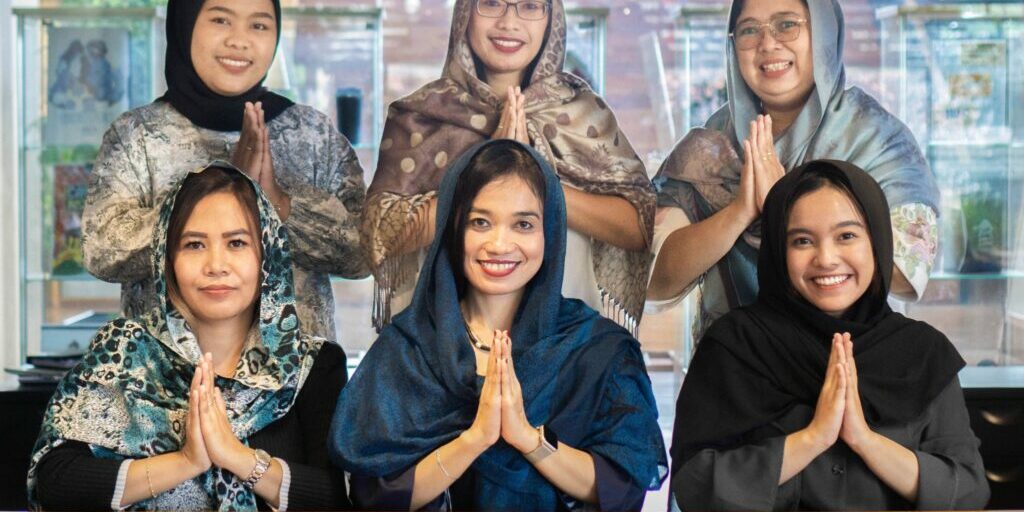
Unique Eid Al-Adha traditions from around the world
Eid al-Adha is one of the most significant Islamic holidays celebrated by millions around the globe. While the essence of the celebration remains the same—commemorating the willingness of Ibrahim (Abraham) to sacrifice his son as an act of obedience to God—the way it is celebrated can vary greatly from one culture to another.
So, what makes Eid al-Adha so special in different parts of the world?
How do various communities infuse their unique customs and traditions into this sacred festival?
In this article, we will take you on a journey across continents to explore some of the most distinctive and heartwarming Eid al-Adha traditions that make this festival a truly global celebration. From unique culinary delights to fascinating rituals, you’ll discover how diverse yet united the Muslim world is when it comes to celebrating Eid al-Adha.
Ready to be amazed by the richness and variety of Eid al-Adha traditions around the world? Let’s dive in!
1. Turkey
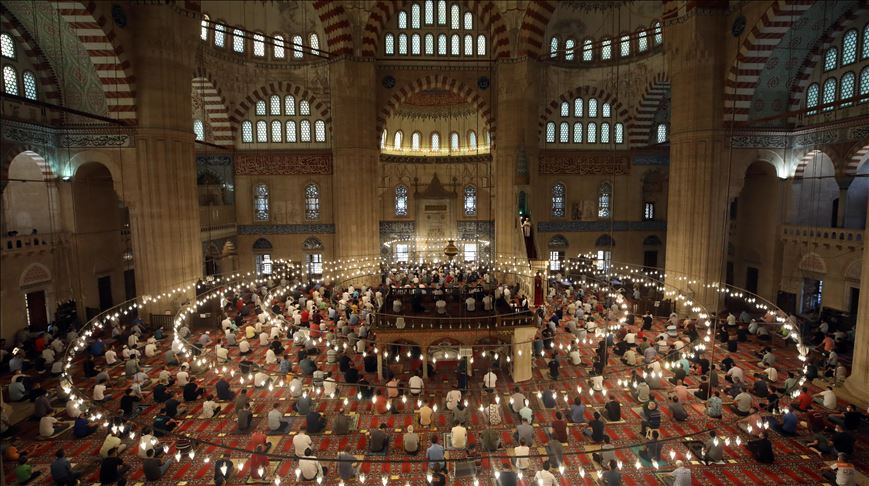
In Turkey, Eid al-Adha is known as Kurban Bayram, a time of deep cultural and religious significance. The celebrations begin with communal prayers at the mosque, where people gather to mark the start of this auspicious occasion. A unique tradition in Turkey involves visiting cemeteries to honor deceased relatives, reflecting the importance of family and remembrance during the festival.
One of the core practices is the act of sacrifice, symbolizing Ibrahim’s devotion. Families purchase animals, usually sheep or cows, to be sacrificed. The meat is then meticulously divided into three parts: one for the family, one for relatives and friends, and one for the less fortunate. This act of sharing highlights the spirit of generosity and community that defines Kurban Bayram.
The festive atmosphere extends to homes, where families come together to share elaborate meals featuring traditional Turkish dishes and sweets. Baklava, a favorite dessert, often graces the dining table. Children eagerly anticipate the holiday, as they receive gifts and new clothes, adding to the joyous celebration.
In Turkey, Kurban Bayram is not just a religious observance but a vibrant cultural event that strengthens family bonds and fosters a sense of community.
2. Nigeria
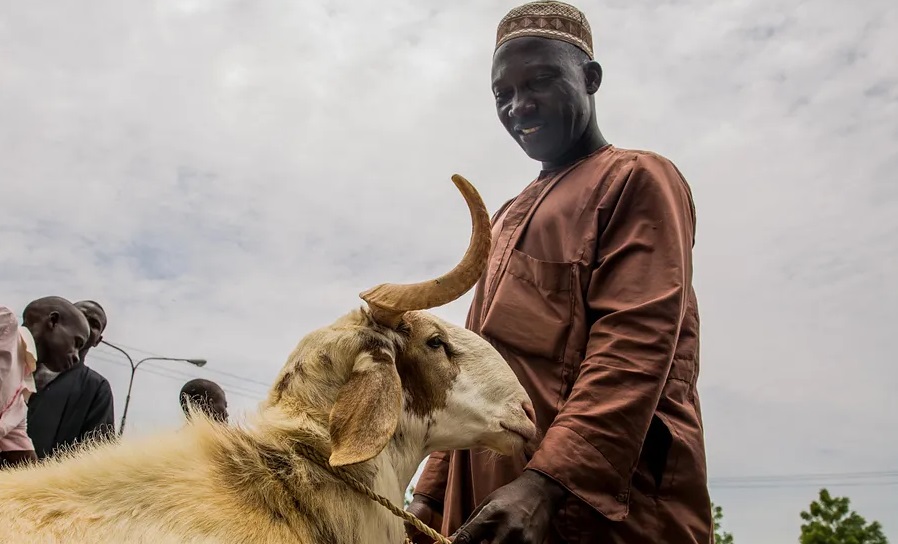
In Nigeria, Eid al-Adha is locally known as Ileya, a time of vibrant celebration and deep religious observance. The festival kicks off with prayers at the mosque and open grounds, where Muslims gather to offer their gratitude and seek blessings. As part of the tradition, families perform sacrifices, usually of rams, reflecting the spirit of Ibrahim’s devotion and obedience.
One of the highlights of Ileya is the elaborate feasts that bring families and communities together. Traditional Nigerian dishes take center stage, with jollof rice, a beloved staple, and suya, spicy meat skewers, delighting palates. Rich, flavorful stews and other local delicacies add to the festive spread, making the meals a culinary celebration in themselves.
Family visits are an essential part of the Ileya festivities. Relatives and friends come together, exchanging gifts and well wishes, strengthening social bonds and community spirit. The joyous atmosphere is palpable, as laughter, music, and the aroma of delicious food fill the air.
3. Bangladesh
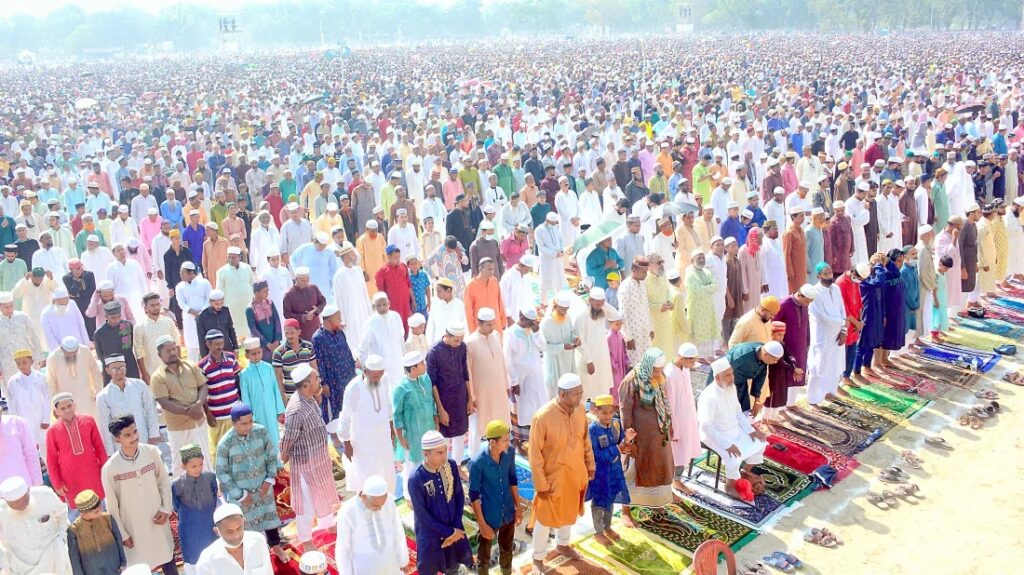
In Bangladesh, Eid al-Adha, referred to as Qurbani Eid, is a cherished occasion marked by a blend of religious devotion and cultural traditions. The celebrations begin with prayers at the mosque, where the community gathers to seek blessings and offer gratitude.
The ritual of animal sacrifice, known as Qurbani, is a central aspect of the festival. Families purchase goats, cows, or other livestock to be sacrificed, commemorating Ibrahim’s willingness to sacrifice his son in obedience to God. The meat from the sacrifice is thoughtfully divided into three parts: one for the family, one for friends and relatives, and one for the poor and needy, embodying the spirit of charity and compassion.
Food plays a significant role in the festivities. Special dishes such as tehari, a flavorful spiced rice with meat, and biryani, a fragrant rice dish layered with meat and spices, are lovingly prepared and shared among family and friends. These culinary delights add a festive flavor to the celebrations.
Dressing in new clothes is another beloved tradition during Qurbani Eid. People don their finest attire and visit relatives and friends, exchanging greetings and well wishes. These visits strengthen familial bonds and foster a sense of community and togetherness.
4. Indonesia
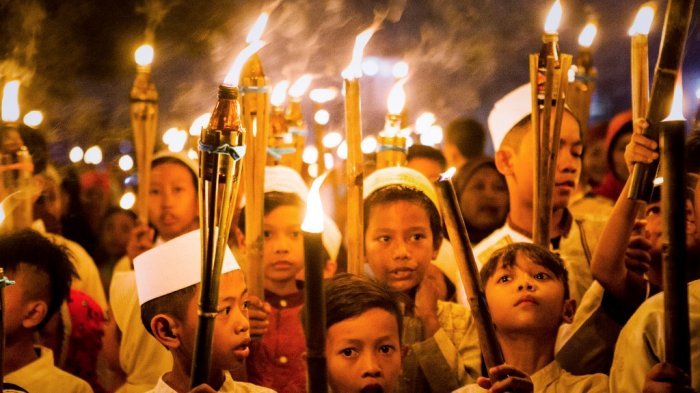
In Indonesia, Eid al-Adha, or Idul Adha, is a vibrant and spiritually enriching celebration, deeply rooted in communal and charitable traditions. One of the most unique and resonant practices is Takbiran, the communal chanting of “Takbir” on the eve of Eid. The air fills with the rhythmic and melodious sounds of “Allahu Akbar” (God is Great) as communities come together in mosques, streets, and homes, creating an atmosphere of spiritual unity and anticipation. The full text of the Eid Al Adha Takbir can be found here.
The following day begins with special Eid prayers at mosques and open fields, where worshippers gather to mark the beginning of this holy day. A key tradition of Idul Adha is the ritual of animal sacrifice, symbolizing the willingness of Ibrahim to sacrifice his son as an act of obedience to God. Families and communities pool their resources to purchase livestock, such as goats and cows, for the sacrifice. The meat is then meticulously divided into portions to be shared with family, friends, and especially the less fortunate, embodying the spirit of generosity and compassion.
Community service and charitable activities are integral to the Indonesian Eid al-Adha celebrations. Many people participate in various forms of social service, such as distributing food, providing financial aid to those in need, and organizing communal meals. These acts of kindness reinforce the values of solidarity and care for the less privileged, which are central to the spirit of Idul Adha.
5. Maroko
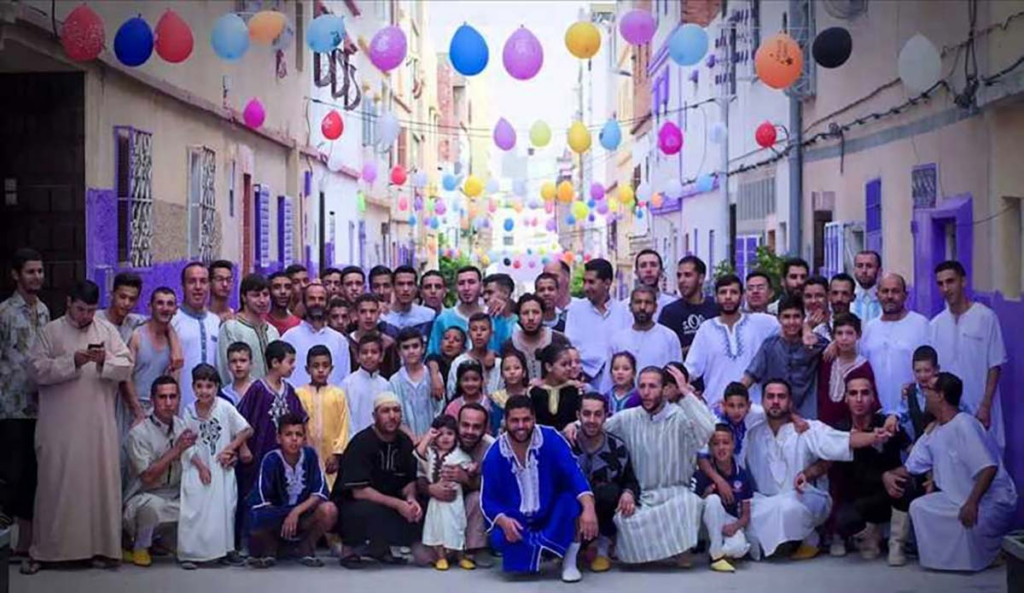
In Morocco, Eid al-Adha, known as Eid al-Kabir, is a deeply significant and festive occasion, marked by a blend of religious observance and cultural customs. The day begins with special Eid prayers held in mosques and open spaces, where communities gather to seek blessings and give thanks. These prayers set a reverent tone for the day, bringing people together in a shared spiritual experience.
A unique tradition in Morocco is the thorough cleaning and decorating of homes in preparation for the celebration. Families take great pride in ensuring their homes are spotless and beautifully adorned, symbolizing a fresh start and the welcoming of blessings into their households. This tradition enhances the festive atmosphere and adds a personal touch to the celebrations.
The ritual of animal sacrifice, commemorating Ibrahim’s act of faith, is a central aspect of Eid al-Kabir. Families typically sacrifice sheep, goats, or cows, and the meat is divided into portions to be shared with family, friends, and those in need. This act of sharing reflects the values of generosity and community, which are at the heart of the festival.
The festivities also include preparing and enjoying traditional Moroccan dishes, bringing family and friends together to share in the joyous occasion. Specialties such as mechoui (roast lamb) and various tagines are often part of the festive meals, highlighting the rich culinary heritage of Morocco.
Summary
From the bustling streets of Istanbul to the vibrant neighborhoods of Lagos, the serene villages of Bangladesh to the lively communities of Indonesia, and the beautifully adorned homes of Morocco, Eid al-Adha is celebrated with unique traditions that reflect the rich cultural tapestry of the Muslim world.
While the customs and practices may differ, the essence of Eid al-Adha remains the same everywhere: a time for spiritual reflection, acts of generosity, and the strengthening of familial and communal bonds. Each tradition, whether it’s the rhythmic Takbiran chants of Indonesia or the elaborate feasts in Nigeria, highlights the universal values of faith, compassion, and togetherness.
As we explore these diverse traditions, we are reminded of the common threads that unite us all—no matter where we come from. Eid al-Adha is more than just a religious festival; it is a celebration of shared humanity and the enduring spirit of giving.
May these stories of unique Eid al-Adha traditions inspire you to appreciate the beauty of cultural diversity and the profound unity that this sacred festival fosters around the globe. Eid Mubarak to all!
